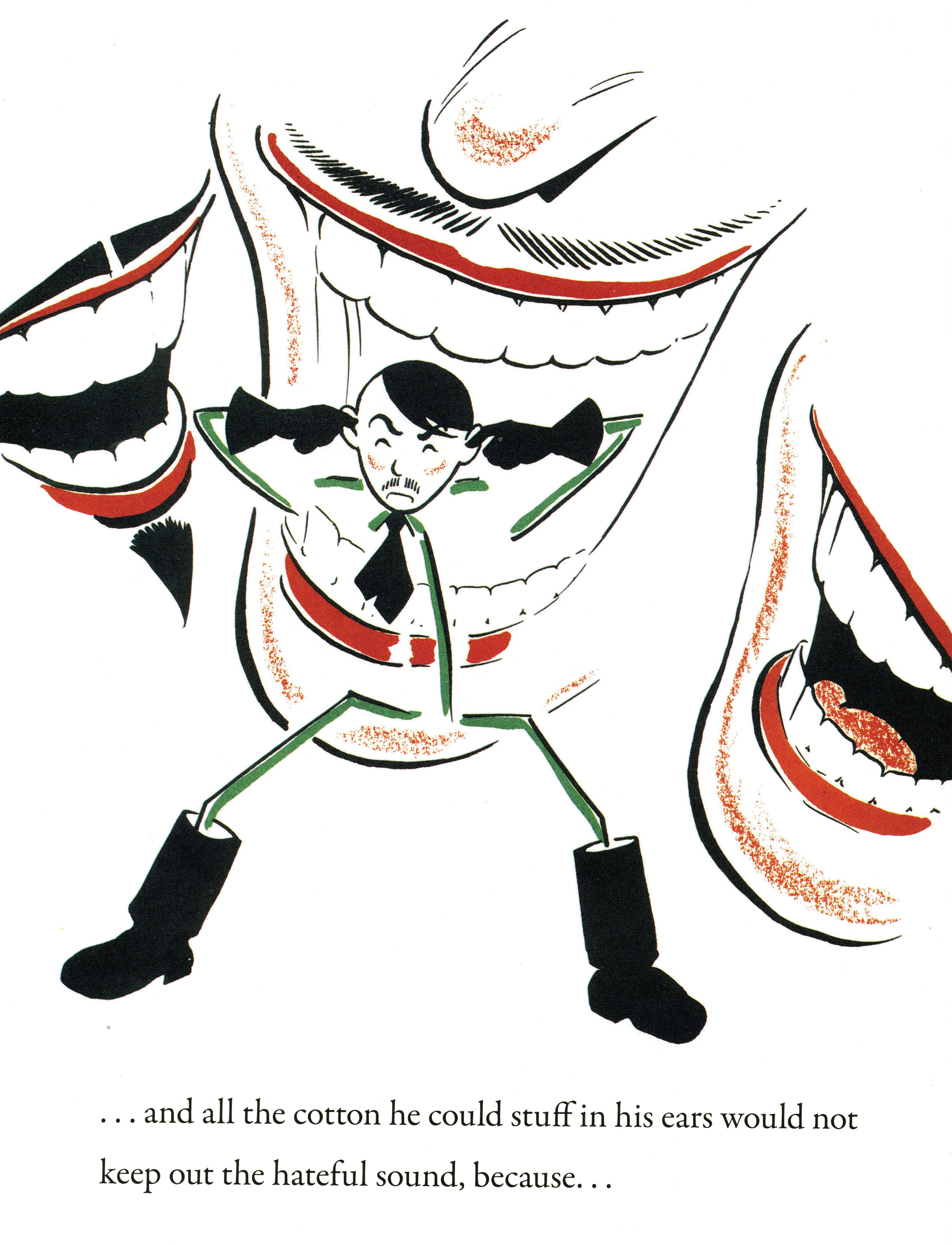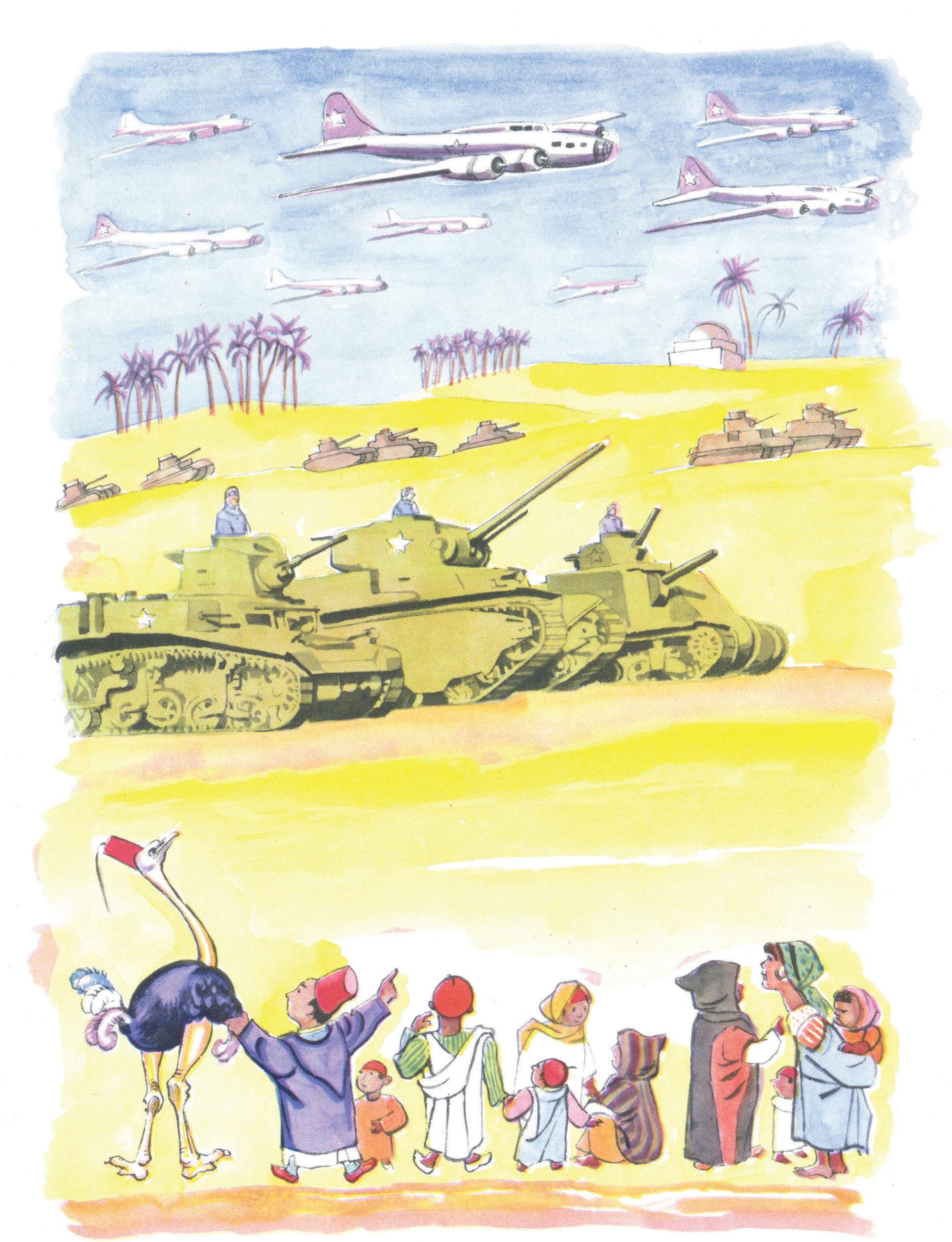
4 minute read
ARTS
ARTS Fairy tales offer alternative to fascism and racism
by Charlie Smith
Advertisement

Deirdre and William Conselman Jr.’s Keedle, the Great: And All You’ve Ever Wanted to Know About Fascism (left) and Emery Kelen’s Yussuf the Ostrich rallied readers to oppose Adolf Hitler’s regime.
Minneapolis folklorist Jack Zipes has spent decades demolishing misconceptions about fairy tales. On in North Africa. “He’s captured by the Nazis and they want to kill him,” Zipes reveals. Two dachshunds befriend him in capthe phone from his home, the University of Minnesota professor emeritus tells the Straight it’s a “myth” that these stories are sweet, pretty, and shallow—even though many were “sanitized” in later versions by the Brothers Grimm and in Disney movies.
“Fairy tales deal with problems that we have not resolved,” Zipes says. “And they provide alternatives, for instance, to fascism, alternatives to absolutism, to any type of racism.”
Last year, Miscellaneous Productions artistic director Elaine Carol directed a 39-minute film, “Resurrecting Dead Fairy Tales”, which features Zipes discussing his recent research. It will be presented, along with a question-and-answer session, on Facebook on Wednesday (February 17).
Zipes tells the Straight that he plans to share stories of 20th-century fairy-tale creators who inspired people to rise up against the Nazis. For example, in Deirdre and William Conselman Jr.’s Keedle, the Great: And All You’ve Ever Wanted to Know About Fascism, a nasty child who kills insects grows up and tries to dominate the world.
“You see the planet—the world—angry at him, and then the world starts laughing at him and mocking him,” Zipes relates. “And he gets smaller and smaller and smaller until he disappears—a wonderful story.”
Another 20th-century story, Yussuf the Ostrich, features a bird befriended by an Arab boy who takes him to school to learn to read. The ostrich is the fastest runner in the region, so he becomes a messenger for the American forces fighting the Germans tivity. And even though the little dogs wear jackets with swastikas, they hate the Nazis. The illustrator and writer, Emery Kelen, was a Hungarian Jew and First World War veteran who fled Europe in 1938 and ended up working for the United Nations. Zipes founded Little Mole & Honey Bear, which published these books. He says that one of his missions in life is to draw more attention to “wonderful, very significant authors and illustrators” from the 1920s to the 1950s who have been neglected. “I want to unbury them before I’m buried,” Zipes quips. As an example of a socially conscious fairy tale, he cites Little Red Riding Hood. Most people believe it’s a story about a girl who ventures into the forest before going to her grandma’s house, where a woodcutter saves her from a wolf. “That’s not the original tale whatsoever,” Zipes insists. “It’s a tale about violation of women, rape of women.” According to Zipes, early versions began with the young girl—considered naive, stupid, or innocent—collecting flowers because a wolf tells her that her grandmother might like them. Then the wolf runs to the grandmother’s house, devours the old woman, and later asks Little Red Riding Hood to get into bed after she arrives. “Sometimes she does a striptease, takes off all her clothes, gets into bed, and asks three questions—the last one always being, ‘My, what a big mouth you have,’” Zipes says. “He says, ‘All the better to eat you with.’” In 17th-century French author Charles Perrault’s version, the wolf eats the girl. The moral of that tale, Zipes says, is that little girls who invite wolves into their parlours get what they deserve—a stigma that still hasn’t been erased more than three centuries later.
“That ideology still exists today,” he adds. “As we talk, every four minutes a woman is being raped or violated in this world, all over the world.”
Zipes says that Hansel and Gretel is really about child abandonment and child abuse. He’s studied many versions of Cinderella, including one in which she murders her wicked stepmother to stop the abuse.
“Fairy tales were never for children—they were never created for children,” Zipes says.
Miscellaneous Productions’ Carol tells the Straight by phone that Zipes was one of the first to “really deconstruct the myths of the sanitized fairy tales and go back to the originals”. That’s one reason why she wanted him to be the first to appear in her company’s series of online events called “Pandemic Projects”.
“We know he’s going to get a huge audience,” Carol says. “He’s like a rock star in the fairy tale and folklore world. He’s got an enormous international following.” g



Miscellaneous Productions will present “Resurrecting Dead Fairy Tales”, a filmed online lecture with folklorist Jack Zipes, free on Facebook at 5 p.m. on Wednesday (February 17).

PROXIMITY - A COLLECTION OF SHORT WORKS
JOSHUA BEAMISH / MOVETHECOMPANY
FEB 25–MAR 11, 2021
ONLINE
PHOTO DAVID COOPER









